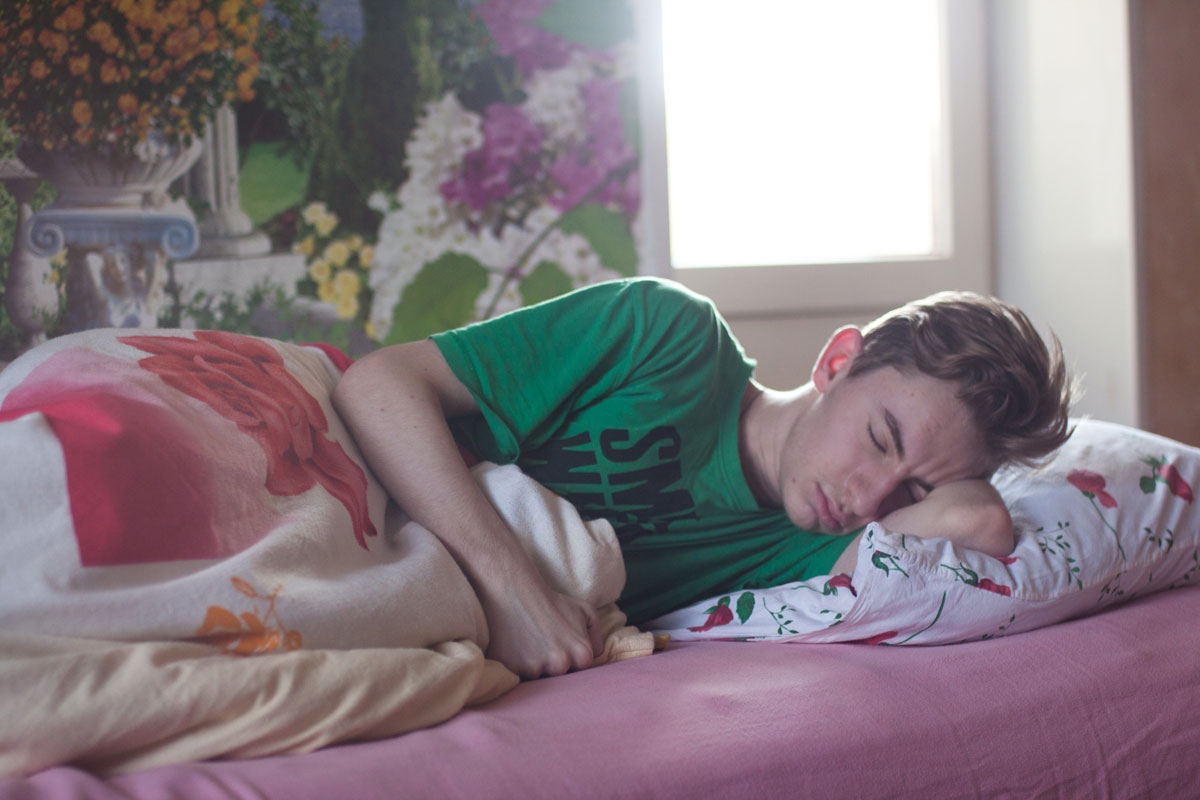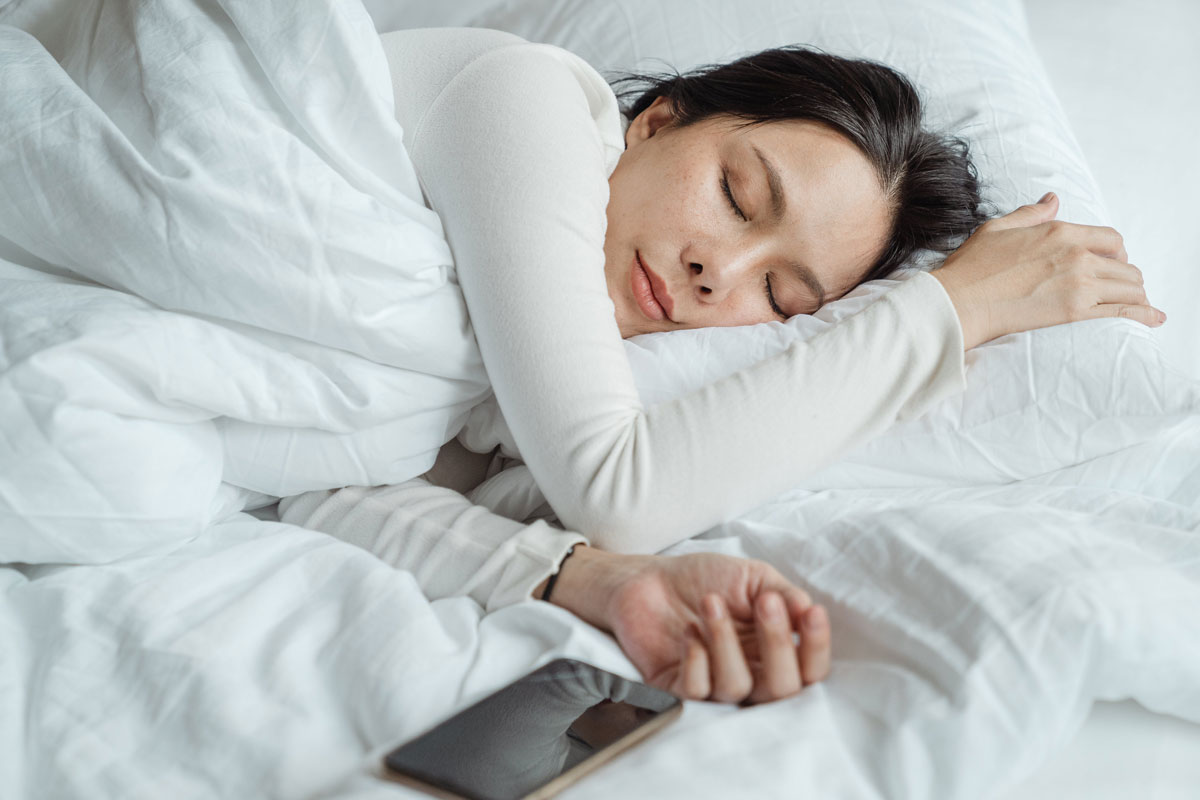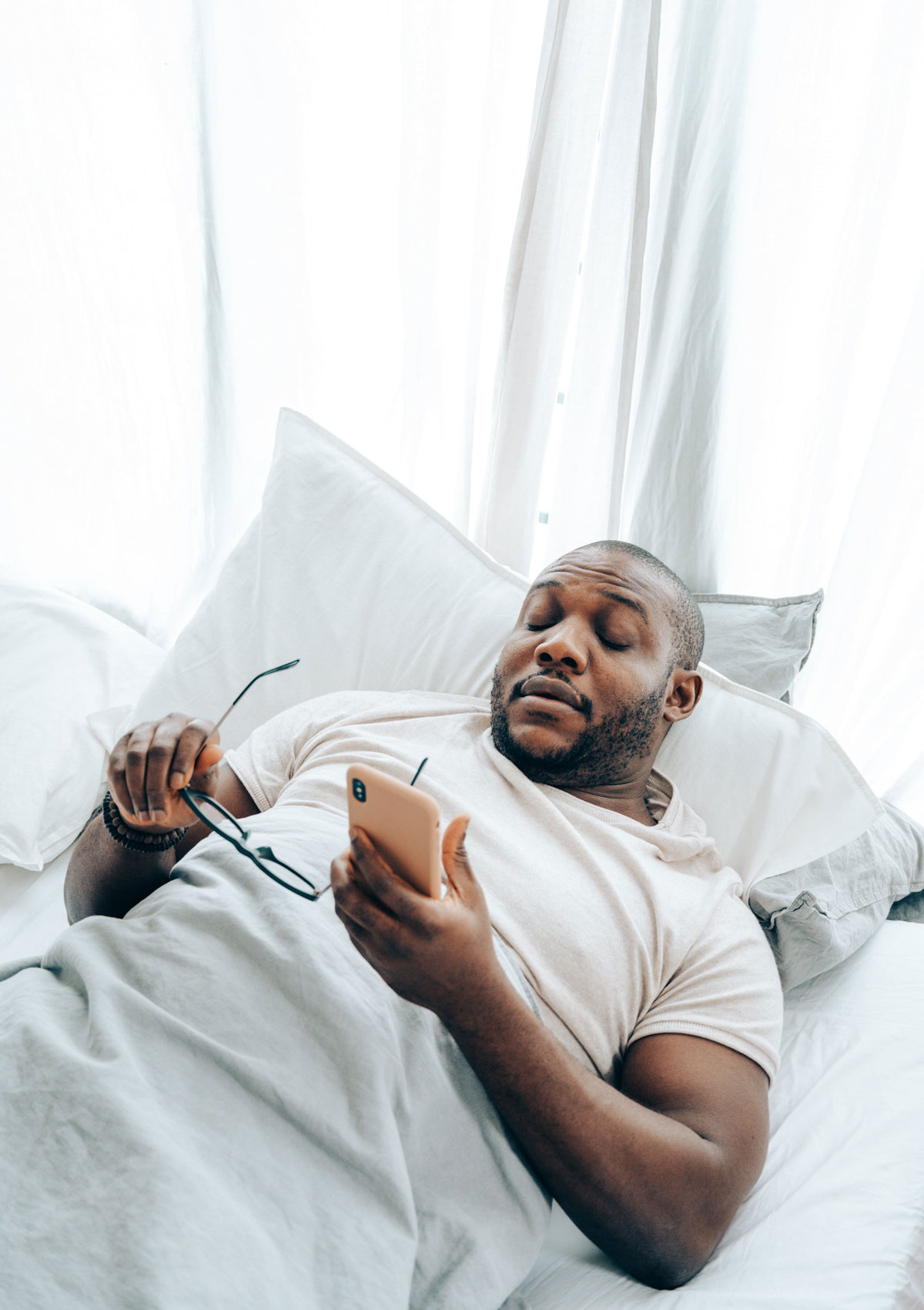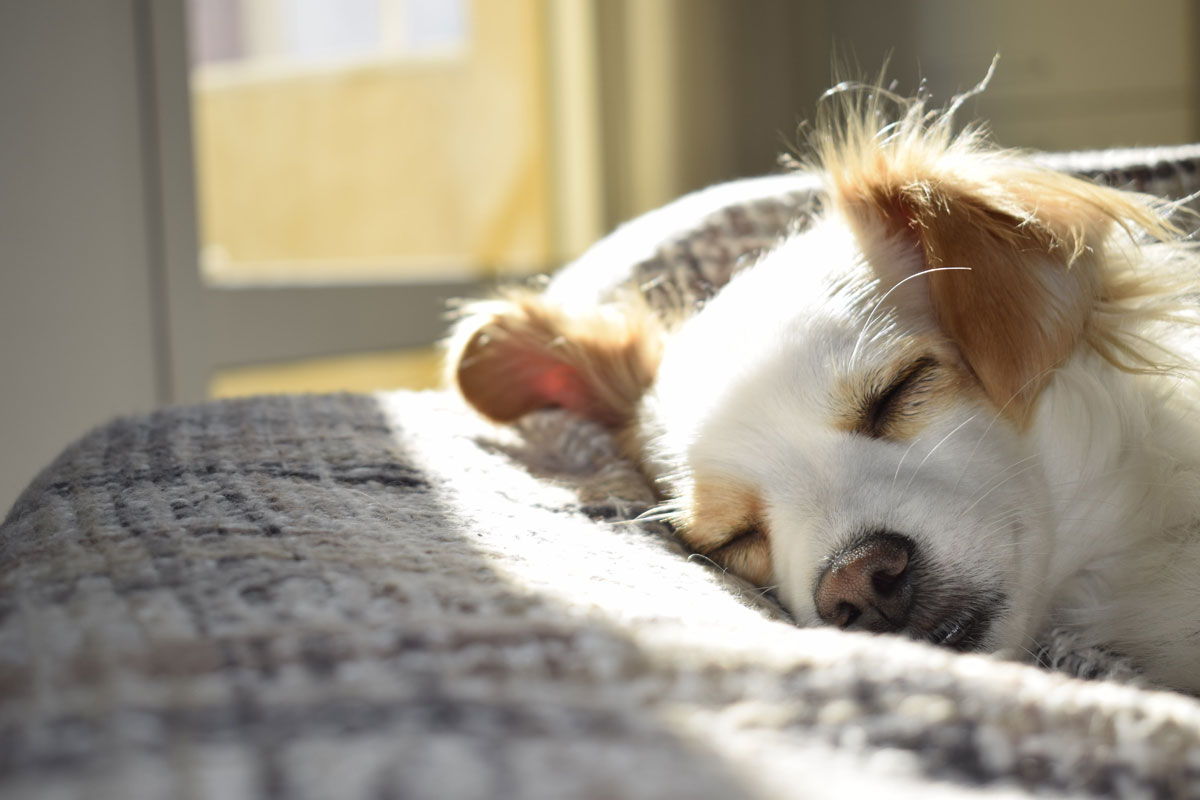
I am one of those people who generally has a tough time falling asleep. My husband, on the other hand, is asleep and lightly snoring within two minutes of hitting the pillow. I’m happy for him, but some nights, it’s so obnoxious. If you’re like me, you’ve probably tried all of the usual suggestions, like unplugging from screens, meditation, limiting caffeine intake, melatonin, etc. to varying degrees of success. It’s so frustrating! This week, experts talked to Parade about how long it should take people to fall asleep and what they should and shouldn’t do in their quest for a good night’s rest.
It should take between five and 15 minutes to fall asleep: Some people fall asleep almost instantaneously while others lie in bed for hours. What’s considered normal? Dr. Chelsie Rohrscheib, Ph.D., the head sleep expert and neuroscientist at Wesper, says that, ideally, it should take between five and 15 minutes to fall asleep. “If it consistently takes you more than 30 minutes to fall asleep three or more times per week, that is a sign that you’re suffering from onset insomnia,” she says.
Avoid mixed signals, only use your bed for sleep and sex: Dr. Mark S. Aloia, Ph.D., the head of Sleep and Behavioral Sciences at Sleep Number and an Associate Professor of Medicine at National Jewish Health in Denver, says that there are many different reasons why it could be taking someone longer than 30 minutes to fall asleep. “Part of the problem for some people is that when they lie down without intending to fall asleep. They read, watch television, or do work in their beds. This is fine if you have no trouble falling asleep, but if you’re struggling with sleep then this sends your body mixed signals as to what to do when you lay down,” he says. This is why many sleep doctors say that the bed should only be used for sleep and sex, as opposed to using it as a place to do other activities, like watching TV or answering emails.
Avoid unnecessary stimulation: Dr. Rohrscheib says that another common reason people have trouble falling asleep is because they engage in stressful or stimulating activities within two hours of going to bed. She says that this includes doing work, chores and watching TV shows that are too stimulating. She also says that it’s important to avoid too much light the hour before bedtime and to get plenty of natural sunlight during the day. “This helps to keep your circadian rhythm well regulated since the brain uses light stimulation to know when we should be awake and asleep,” she says.
Be consistent with bedtime: Even when taking all of this advice into account, there’s one common habit both sleep experts say could be negatively impacting sleep: waking up and going to bed at inconsistent times. For example, maybe during the week you go to bed around 10:30 p.m. and wake up around 7 a.m., while on the weekends, you stay up until midnight and then sleep until 10 a.m. Inconsistencies like these, they say, could make it harder to fall asleep.
“It’s important to avoid keeping an inconsistent sleep schedule because this is highly disruptive to your circadian rhythm, your brain’s internal 24-hour biological clock,” Dr. Rohrscheib says. “When you don’t keep a consistent schedule, it’s very difficult for your brain to predict when it should start creating the chemicals needed to initiate and fall asleep. Even a 30-minute deviation may be enough to disrupt sleep for people who are extra sensitive sleepers.”
Consistency is key: Dr. Aloia agrees, saying, “If your sleep schedule varies too much day-to-day, you may need to try to reel in your sleep routine with the same or similar sleep and wake times. Consistency can go a long way.”
This is all solid advice. I think it’s easier to be consistent with your sleep patterns as you get older and your body forces you to go to bed. I try to be consistent, but my mind has a tough time shutting off, so going to bed is a process for me. I need to unwind to get to the right place mentally. I find that I feel much better if I go to bed or fall asleep before midnight, even five minutes before, vs. at 12:01 a.m. I generally do not need more than six to seven hours of sleep. I’ve just always been that way. Like I said above, I have a lot of trouble actually falling asleep. When I was a kid, I’d count down from 100 to shut my mind off. As an adult, I’ve tried so many different methods throughout the years, from no screens to drinking “sleepytime” teas. I don’t drink caffeine after 10:00 a.m. I’ve been prescribed sleep aids, tried melatonin and taken Advil PM. Sometimes they work, sometimes they don’t. What I’ve been doing lately, though, is drinking this tea with melatonin in it that my therapist told me about. I try not to drink it every night, but when I do, it does enough to take the edge off and make me very yawn-y. Solidarity to all of my fellow insomniacs out there.
Photos credit: Johnmark Smith, Ketut Subiyanto and Christian Domingues on pexels














It almost always takes me at least a half hour to fall asleep, I figured that was normal? My husband is one of those annoying people who is snoring within 5 minutes.
I don’t drink caffeine after my morning tea typically, but I know I do engage in too much screentime as I get close to bedtime. Reading for 20 minutes (even in bed, once I’m all set up for sleep) does help. I am not great about being consistent with bedtimes though.
Also, I swear I’m not paid by them, lol, but Clevr Blends has a sleeptime latte that I swear really does help to put me to sleep. It’s very comforting and just makes me want to curl up in bed after I drink it. (and also, Clevr Blends lattes are the only caffeine beverages I’ll drink in the afternoon, the mocha latte and the london fog latte have about 35 mg of caffeine in a serving and I can drink one of those at 2 and be fine for bed.)
A Hatch alarm clock also helps me a great deal because it reminds me to go to bed, I set up a sleep routine, and the sunrise alarm helps me to wake up.
I’m going to try Clevr Blends the next time I’m in the States, lol
I have had insomnia my whole life and it got way worse when my kids were born. I think limiting caffeine has helped me. It’s expensive but CBD gummies or oil or drinks 20 minutes before bed along with chamomile tea signals to my body that it’s time to sleep. I had to laugh where they say that stimulating tv is not great right before bed. When Logan Roy died in Succession, no amount of chamomile was going to calm me down.
Rachel, what CBD gummies or oil do you use? Always been curious to try since I know so many people who swear by them.
I’m not Rachel, but I’ll chime in to say that I love the Sunsoil brand CBD capsules and gummies. It’s high-quality CBD and they seem like a great company. I order directly from the Sunsoil website, but it’s also sold in many stores.
The regular schedule thing makes so much sense but it’s easier said than done when your work hours are sometimes irregular. I don’t do shift work but sometimes I have to get an early train to go and see a client in-person and that messes me up.
My morning body clock is very rigid. Maybe once or twice a week my boyfriend’s alarm goes off at 06:20 and I wake up at that time pretty much every day. Some days I get back to sleep and some days I don’t. It wears me down even though I don’t go to bed late. I’m trying to persuade him to use his fitness tracker instead of the blaring phone alarm.
I’ve the same sleep problems and it’s a misery. I’m leaving soon to travel 1-2 months for the holidays and visit family and friends. At home I mostly have just been giving into it, getting up and doing whatever. It can create problems for my hosts since I get up and walk or cook or do laundry, whatever. Coping with sleep issues other places has been worked out since Covid except for my oldest sister’s home. She’s got a gorgeous high rise and it’s a pain. The walls of windows reflect all lights, the huge rooms amplify sound in her open concept home. Even getting outside, elevator, heavy loud shutting doors, security personnel is inconvenient for others. I hate staying there to the point I didn’t even do it last year which hurt her feelings. I still saw her plenty but slept at my son’s or brother’s or friend’s. This year I’m dreading it already. At this point I see my only option is to get drunk and pass out lol.
Southern Fried- in regards to staying with your sister, have you ever tried a slumber mask & earplugs?
They are a gamechanger for me since I do a lot of shift work & sometimes have to sleep during the day.
Yes thanks but I found them irritating. Sometimes a weighted blanket works.
Since working from home, I can’t sleep if I don’t do at least 30 minutes walk that day. Physical activity is key to my sleep schedule now. I even drink coffee at night and go to sleep anyway if I do a nice 1 hour walk in the evening.
Good point, SevenBlue: I also need minimal physical activity, and Good point: Southern Fried: Darkness is your friend at night.
One of the things that can help is strong light at the right time of day (the morning). For those of us who live too close to the North or South pole to see much morning light, a SADS lamp can help. Turn down the lights in the evening. This helps reset. So does “natural camping” without electronic gadgets, though I’m not into that, especially at this time of year.
Cooling down slightly before going to bed helps too. Consider taking a warm shower before bed. You’ll raise your body temperature slightly and then it will fall. The sauna works like that, too. Don’t exercise.
Don’t eat a couple of hours before bed. Sometimes digesting food can keep you from sleep. In some older people, it can lead to heartburn.
I try to stick to all the sleep hygeine advices as much as I can, but my problem isn’t falling asleep so much as *staying* asleep. The only times I sleep more than 4hrs straight are the very rare occassions I can take a prescription sleeping pill or if I am sick. I think I have self-diagnosed myself as a biphasic sleeper, but feel free to list all your “stay asleep” tips for me here!
FancyPants, Not being able to fall asleep after waking up too early is awful! Hugs. This has sometimes happened to me (mainly stress, loud neighbors/ idiot active cat, or menopausal night sweats). For night sweats, the game changer for me is making sure my blood sugar doesn’t spike. When I eat something sweet or something (chips, juice, pasta…) that could rapidly increase my blood sugar, I now try to only have it as part of a meal or eat it with food containing fiber, protein and/or fat. I don’t know what phase of life you’re in, but you could try that and see if it helps? I don’t drink alcohol—that also spikes blood sugar.
I am like you, FancyPants, in that I’ve no trouble falling asleep (I use rec marijuana) but staying asleep is the issue. Bedtime is 10-10:30pm but I find myself waking between 3-4am more than once a week. I’ve tried many things but haven’t found a “fix” if there is one. I get into a vicious cycle of falling asleep on the couch because I’m so tired from being up so early the night before. I was told this happens to a lot of women my age (49).
I started wearing the Oura ring when it first came out – in the beginning of covid and my cancer treatments. It has excellent sleep tracking and I discovered that if I follow its directives to a T, my sleep is wonderful. It dictates when I should go to bed, when I should start getting ready for bed, and gives me a read out and score in the morning. My family and I jokingly call it ‘my precious’, but after 2 years of use, I have trained myself to have a consistent bed time and, largely, sleep through the night. For me it’s a matter of life and death, getting sufficient sleep to keep the cancer at bay, so I was willing to be subjected to the ring’s algorithm. My family clearly thinks I am nuts.
@RMS, I’ve been looking at the Oura products. I used to have one of those UP bracelets, probably like 12 years ago at this point, but I liked that it tracked your sleep quality. Thanks for the recommendation with Oura!
I snagged the first version – so the app was free/is still free because they grandfathered us in. IF you follow its dictates, it will make all the difference in the world. Prince Harry wears one periodically, as does Cindy Crawford and a large number of professional athletes. Its sleep tracking is better than the fitbit or apple watch (which I also test out overnight), AND I find its temperature tracking is also a good early indicator if I am getting sick. Neutropenia is no joke, so it helps me to isolate quickly.
Anxiety is my enemy. I go to bed tired, sleepy and exhausted. I drift off to the point of almost falling asleep, then in that half dream state, my mind makes up horrible thoughts / images that jolt me awake. Then I pretty much have to read until a point of exhaustion again and hope to not go through the same cycle again. The annoying thing is that I’m dead to the world between 6-9am. It’s when I get most of my deep sleep, as the alarm is repeatedly going off.
It’s nice to know my sleep issue has a name. Apparently I’ve had onset amnesia since I was a teenager. I can only remember a handful of times in my life when I’ve fallen asleep in under 30 minutes, and all of those times I was either severely sleep deprived or seriously medicated.
p.s. I’m convinced the people that fall asleep the minute they close their eyes are actually some sort of robot and someone has put them in sleep mode. What other explanation can there be? Especially those that can sleep for hours on airplanes.
Magnesium is the best. I got the powder from Amazon and you mix it with warm water before bed and it puts me to sleep without leaving me groggy in the morning. Highly recommend!
Magnesium is my go too as well.
I swear by it not only to help you sleep, but also for leg cramps. I use the powder version too as it’s meant to absorb better but I have also bought P.M specific magnesium tablets in the past with good results.